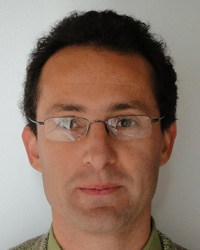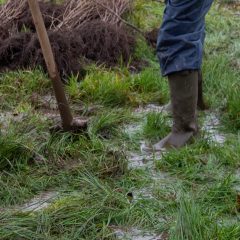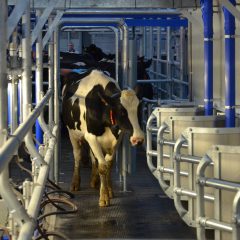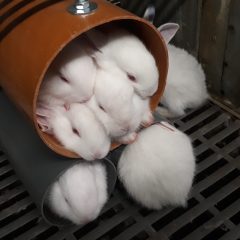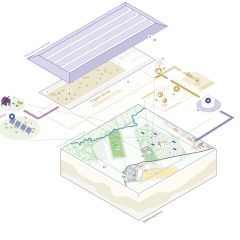Research project Methane emissions from cattle in Flanders and opportunities to reduce methane emissions

General introduction
This project deals with the methane emissions from large ruminants (dairy and beef). How much methane, a greenhouse gas, do different types of cattle produce exactly under different circumstances in Flanders? Which technologies can measure this accurately? And how can we use these technologies to evaluate new and existing methane reduction techniques? Several strategies are described that have the potential to reduce CH4 production from ruminants in intensive production systems which could be used over the long term. Such strategies require an extensive test phase under diverse conditions, however.
Research approach
We first determine the methane emission of a limited number of animals using ILVO’s high tech individual open-circuit chambers (OCCs). We work under controlled conditions with Flemish feed rations. We apply a number of strategies to reduce methane and measure the effect using the OCCs. We also examine whether a reduction strategy does or does not lead to a shift, such as increased emissions of other greenhouse gases or a shift of the emission from the mouth to the manure. We measure that for the other greenhouse gases and examine the manure for emissions. We verify that the product quality (milk, meat) is still guaranteed. Second, we translate this knowledge to the farm by working with our partners to develop measuring techniques to be used on the farm.
Relevance/Valorization
Every industrial sector should contribute to the reduction of greenhouse gas emissions. Emissions of methane (CH4) associated with agriculture represents 77% of the total Flemish CH4 emissions. Ruminants are the main methane producers. The lifetime of methane in the atmosphere is relatively limited (12 years) compared to other greenhouse gases such as carbon dioxide and nitrous oxide (>100 years). Therefore, large reductions in methane production can slow down the greenhouse effect considerably in the short term. The knowledge gained here can also serve to improve the accuracy of Flanders greenhouse gas inventory.
